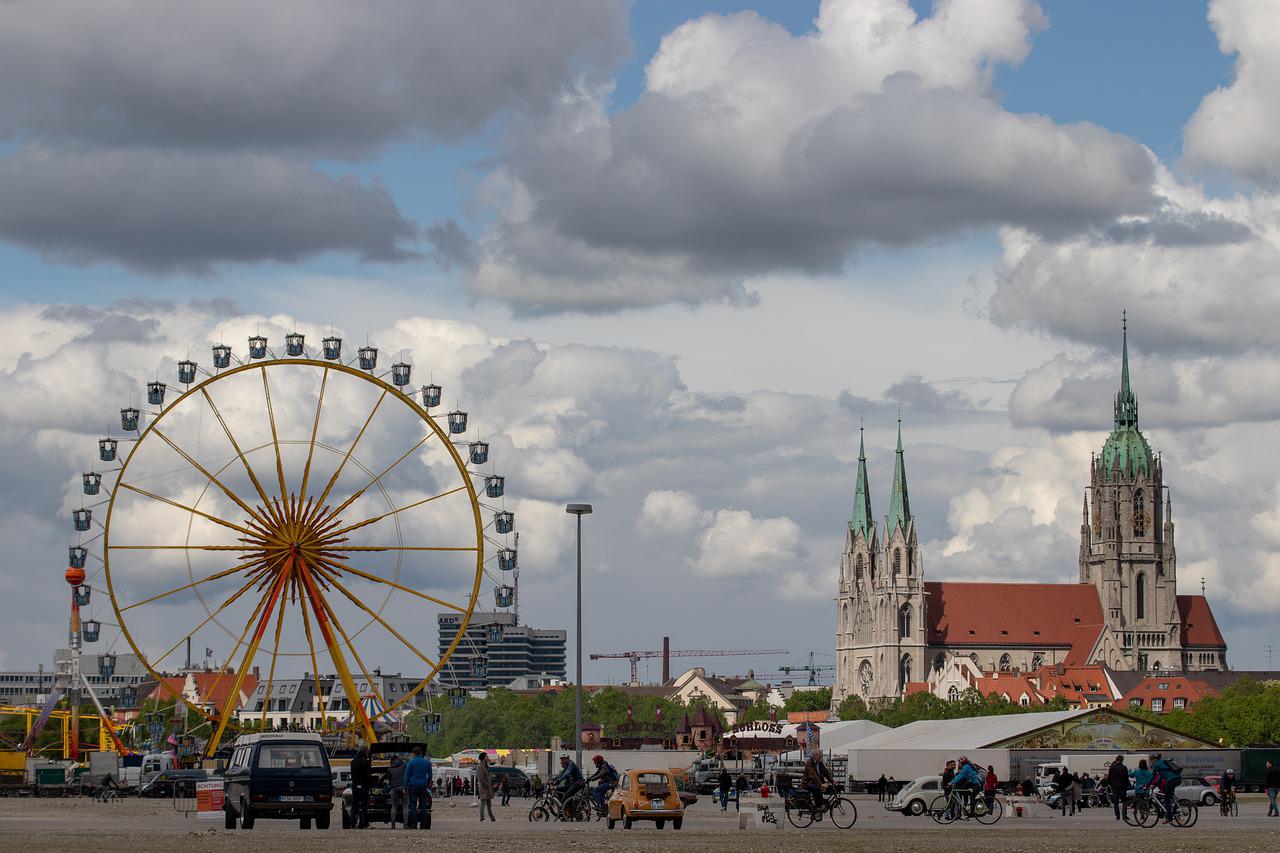Newbie/First Timer Blogs
Renting Living Accommodations in Germany
10 June 2018

Germany is filled with beautiful cities, bursting at the seams with rich traditions and robust cultural experiences. Most foreign travelers have nothing but positive things to say about their visits. However, when it comes to finding more permanent living situations, new renters often undergo quite the culture shock. Germany rentals are different from the rest of the world and can prove to be very difficult. The following advice will help alleviate potential headaches and ease the process.
Hire an Immobilienhändler – a real estate agent
The single best thing you can do is hire a real estate agent, regardless of desired property type. No matter how proficient your German speaking skills, most leases contain convoluted legal language too difficult for a layman to understand. While not always the case, landlords sometimes use this to their advantage and trap you into annual rent increases or other hidden dues. Real estate agent fees can sometimes be substantial; however, new law changes dictate that the expenses be covered by the property owner rather than the tenant. This is not always practiced in reality so it’s important to check how the agent’s fees are to be paid before signing any contract.
Alternative: You can use our platform to find your desired room. In case you couldn't find your desired room, please use our feature for room setup to setup your desired requirement and we will notify once we receive a similar requirement.
Expect additional expenses
Although not entirely different from a typical rental process, German properties have an onslaught of expenses not always spelled out in the lease. For starters, expect to pay a deposit of up to three months’ rent, plus first month’s rent upon signing a lease. This may feel steep (and it is), but four months’ rent is the norm for German rentals. Once you move in, the utilities, known as the Umlagen – or Nebenkosten, are subject to change throughout your lease. Utilizing an agent can help you lock into a deal that prevents these increases.
Moving out can carry just as many surprise costs. Should you choose to redecorate your apartment in a permanent way, like changing the paint, you will be subject to “Schönheitsreparaturen,” or decorative repairs. Landlords often use this as an opportunity to hire a team of high-charging professionals, sticking you with the bill. Similarly, damages done during your stay will be taken out of your security deposit, at a surcharge rate. It’s advisable to take pictures of your place when moving out to protect yourself from false damage charges.
Lastly, it’s important to note that leases are extremely difficult to prematurely terminate. The term “extraordinary circumstances” is taken very seriously and you will find that even seemingly valid reasons will often be denied. Job transfers are not seen as a qualifying circumstance and you will be responsible for the payments on the remainder of your lease.
Learn common terminology and abbreviations
Rental property advertisements are heavily abbreviated and use specific terminology. Familiarizing yourself with common shorthand can help prevent confusion and potential issues.
Note: A few very distinct terminology and practical differences to be aware of:
- Room number listings account for all rooms in the residence. If you’re seeking a two bedroom that also has a living and dining room, you will actually want to look for a four-room offer.
- Unfurnished places are completely unfurnished. This means no cabinets, light-fixtures or even appliances. If you choose this route, you will be responsible for installing just about everything.
- Many German rentals don’t offer kitchens. Yes, that’s right, no kitchen. When browsing advertisements, look for a statement of EBK (Einbauküche) which indicates the residence has a kitchen.
The following is a comprehensive, but not fully exhaustive glossary of commonly used rental abbreviations. If you come across a shorthand you don’t understand, always look it up to avoid unexpected surprises.
Abstand = must buy some of the fixtures and furnishings
DG (Dachgeschoss) = loft apartment
EBK (Einbauküche) = built-in kitchen
EG (Erdgeschoss) = ground floor
HH (Hinterhaus) = back of the house (might have little light)
K (Kaution) = deposit
kalt = heating costs extra
NR (Nichtraucher) = non-smokers only
KM (Kaltmiete) = (cold rent)
KN = kitchenette
Nachmieter = tenant taking over an old lease
NMM (Nettomonatsmiete) = net monthly rent (including costs for heating, electricity, gas, water, waste disposal)
MVZ (Monatliche Vorauszahlung) = rent in advance
Prov. (Provision) = commission
Provisionsfrei = Agency fees must be paid the by landlord now
qm (Quadratmeter)= square metre (size of the apartment)
TG (Tiefgarage) = underground garage
VH (Vorderhaus) = front of the house
WG (Wohngemeinschaft) = shared flat
WBS erford. (Wohnberechtigungsschein) = subsidized housing only rented to holders of a special permit (WBS)
Wfl. (Wohnfläche) = living space
WM (Warmmiete) = warm rent (this is the cold rent plus additional cost)
Zi (Zimmer) = room(s)
ZH (Zentralheizung) = central heating
zzgl. NK = plus extra charges (heating, electricity, etc.)
2 Zi.-Whg = two-room apartment
3 ZKDB = three rooms plus kitchen, hallway, bath
*****
Despite the difficulty associated with renting properties in Germany, especially for foreigners, the process can be very rewarding if you approach it with an open-mind and patience. Many incredibly beautiful, sometimes downright breathtaking, residencies are available, all it takes is a little know-how and resourcefulness to find your dream place.
Search

Top five Spring Festivals in Deutschland (Germany)
The days are slowly obtaining longer, the sun is setting later. Trees, pollen, flowers, and fruit step by step recreate the natural great thing about Germany. Yes, that’s ...
28 June 2022

Essential Banking Terms for Foreigners in Germany
For those who have recently moved, or plan on moving soon, to Germany, priority number one is setting up a bank account. With the abundance of money-related technology available today, having a local bank account may ...
17 June 2018

Renting Living Accommodations in Germany
Germany is filled with beautiful cities, bursting at the seams with rich traditions and robust cultural experiences. Most foreign travelers have nothi...
